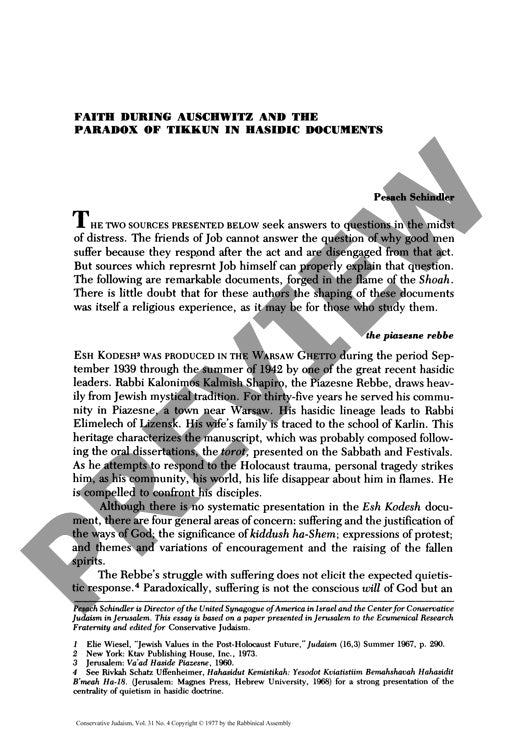Faith During Auschwitz and the Paradox O
Couldn't load pickup availability
In the darkest hours of the Holocaust, two Hasidic rabbis crafted revolutionary theological responses that transformed traditional Jewish mystical approaches to suffering. Through close analysis of Rabbi Kalonimos Kalmish Shapiro's *Esh Kodesh*, written in the Warsaw Ghetto (1939-1942), and Rabbi Issachar Shlomo Teichtal's *Em Ha-Banim S'mehah*, composed in Budapest (1943), a striking pattern emerges: both authors reject passive acceptance of suffering in favor of active partnership with divine will. Their texts, examined through four key themes - theodicy, martyrdom (*kiddush ha-Shem*), protests against divine justice, and spiritual encouragement - reveal how protest against God paradoxically strengthens rather than diminishes religious commitment. Shapiro interprets suffering as concealed divine revelation demanding human partnership, while Teichtal advocates practical Zionist action as a path to redemption. Together, these documents represent a fundamental shift in Jewish theological thinking, establishing *tikkun* (restoration/repair) as the central principle that transforms Holocaust suffering into an imperative for sanctifying life and ensuring Jewish continuity.

More Information
-
Physical Description
-
Publication Information
Published 1977
ISBN
-
Publication Credits
Pesach Schindler

